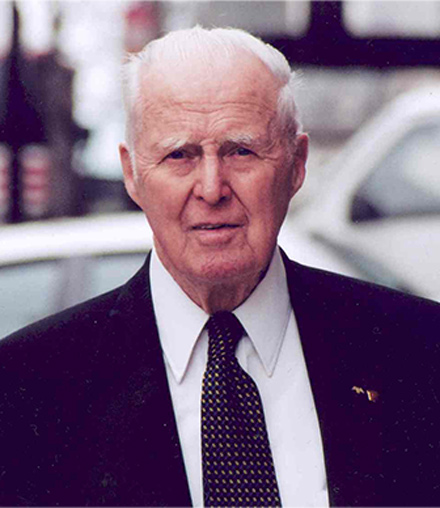Starting in the 1940s in Mexico, a number of technological innovations were made in the agricultural sector that led to vastly increased crop yields. The practices started there spread to other countries and revolutionized the way food was grown all over the world. That period, from the 1940s to the 1960s is now commonly referred to as the Green Revolution. And the man at the head of that agricultural revolution was Dr. Norman Borlaug.

In fact in 2010, Heifer's former President and Chief Executive Jo Luck was awarded the World Food Prize alongside David Beckmann from Bread for the World. And in 2012, our current CEO and President Pierre Ferrari presented a plenary address at the 2012 Borlaug Dialogue. So, today, on what would have been Borlaug's 100th birthday, Heifer honors his work and is honored to say we will continue to carry on his legacy that “Food is the moral right of all who are born into this world."
Because of the increased yields that Borlaug's work led to, it is said that he saved about 1 billion people from famine. Borlaugh continued to work to feed the world throughout his life, and in 1970, he was awarded the Nobel Peace Prize for his work. He then went on to found the World Food Prize, realizing "there should be a prestigious, international award given each year to honor the work of great agricultural scientists working to end hunger and improve the food supply."
Learn how we're working to scale up our impact so that a world of 9 billion won't have to worry about food scarcity.
Let's all work together to ensure everyone around the world has enough to eat.
